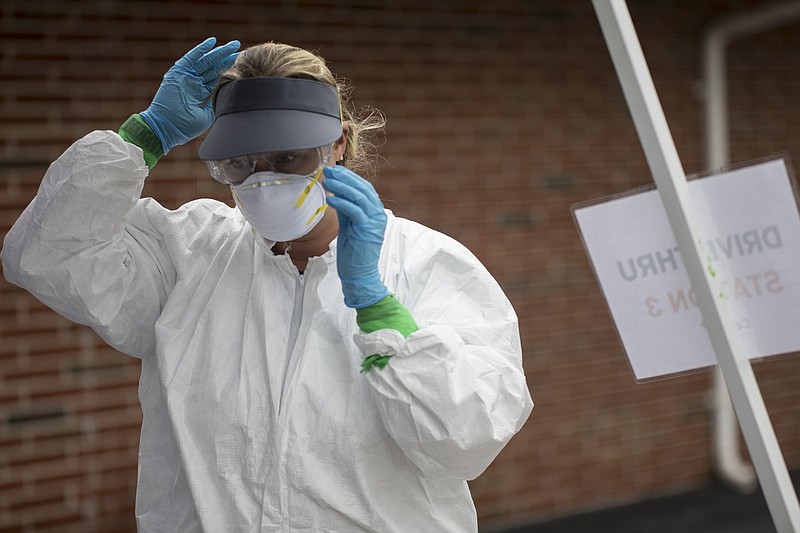Hamilton County's testing effort at local, predominantly Black churches has come to an end after conducting 7,244 tests in some communities most at risk for the virus.
The program, which ran on weekends from June through August, partnered with local congregations that offered their parking lots for drive-through or walk-up testing.
According to data released by the Hamilton County Health Department, 7.8% of the tests or 562 of 7,244 were positive, an average slightly higher than the county's total positivity rate during those months. Nearly 45% of those tested at the sites were Black, a higher percentage than the surrounding county where 19% of the population is Black.
Bill Ulmer, director of community health services for the health department, thanked the various partners on the project, including the Community Foundation of Greater Chattanooga, which supported the program with a $65,000 grant from its Community Response and Resilience Fund.
"We want to thank the African-American church leaders and congregations for stepping up in this vital and historic effort," reads a statement by Ulmer. "We also thank the Community Foundation for the financial support, all volunteers and staff and of course, the community for showing up to be tested to help us slow the spread of this virus."
Several Chattanooga ZIP codes, representing the most diverse parts of the city, rank among the lowest in the state for health outcomes. According to a 2019 report, Black residents of the county are more likely than whites to die or get sick from things like diabetes, heart disease, high blood pressure and cancer.
Joda Thongnopnua, director of communications for the Community Foundation of Greater Chattanooga, said the funding was part of the foundation's immediate response efforts to the pandemic, which included addressing things like food insecurity in the area.
"At the time we funded it, we were really concerned that vulnerable communities were going to be underserved if we didn't step in with additional testing," Thongnopnua said.
Health department-sponsored testing will continue daily from 7 to 11:30 a.m. at the Alstom site on Riverfront Parkway.
Chris Ramsey, president of the Southeast Tennessee Health Consortium, which started the area's minority health fair 19 years ago, said the program removed some barriers to accessing testing since the tests were brought to places where people were already comfortable going.
(READ MORE: Help us tell the stories of Chattanooga area residents who have died from COVID-19)
The end of the church testing program leaves a gap in COVID-19 testing on weekend afternoons, which could be problematic for working families, Ramsey said. One of the challenges in hosting the events was that many of those staffing the sites were volunteers.
"You get the same people having to pick this up and get started on Wednesdays but start planning for the weekend, and you have to move it to each location," he said. "So, I think long term, it's good to identify some permanent locations. But you've got to come up with some hours that are accessible now, since people are back to work, students are back in school. If you have to get tested on a Saturday afternoon after 12 o'clock, starting this weekend, good luck."
Thongnopnua said the community foundation is evaluating access to testing and whether communities have enough options to access testing locally.
Staff writer Elizabeth Fite contributed to this report.
Contact Wyatt Massey at wmassey@timesfreepress.com or 423-757-6249. Follow him on Twitter @news4mass.
